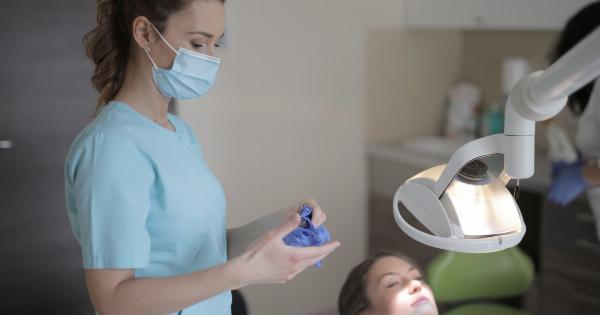Health assessments play a crucial role in identifying potential health issues and ensuring timely interventions. While health assessments are important for both genders, females have unique health needs that require specific attention.
Biomedical advancements have enabled the development of distinctive health assessments tailored specifically for females. These assessments encompass various aspects of a woman’s physical, mental, and reproductive health. In this article, we will explore the different types of distinctive health assessments for females offered by biomedical sciences.
1. Breast Health Assessment
Breast health assessments are essential for early detection and prevention of breast cancer, one of the most prevalent cancers among women. These assessments include regular mammograms, clinical breast exams, and breast self-examinations.
Mammograms utilize X-ray technology to capture images of breast tissue, detecting abnormalities that may indicate the presence of cancerous cells. Clinical breast exams are physical examinations of the breasts performed by healthcare professionals, while breast self-examinations empower women to independently identify any unusual changes in their breast tissue.
2. Gynecological Health Assessment
Gynecological health assessments focus on the female reproductive system, including the ovaries, uterus, cervix, and vagina. These assessments involve regular pelvic exams, pap smears, and HPV screenings.
Pelvic exams assess the overall health of the reproductive organs, checking for any abnormalities or signs of infection. Pap smears detect abnormal cervical cells, which can indicate the presence of cervical cancer or other conditions.
HPV screenings are performed to identify the presence of the human papillomavirus, a common sexually transmitted infection that can cause cervical cancer.
3. Bone Health Assessment
Women are particularly susceptible to osteoporosis, a condition characterized by weak and brittle bones. Bone health assessments involve dual-energy X-ray absorptiometry (DXA) scans, which measure bone mineral density.
DXA scans are used to identify osteoporosis in its early stages, enabling healthcare professionals to initiate preventative measures and prescribe suitable treatment plans to maintain bone health.
4. Cardiovascular Health Assessment
Cardiovascular health assessments aim to identify potential cardiovascular risks in women. These assessments include blood pressure measurements, cholesterol level evaluations, and electrocardiograms (ECGs).
High blood pressure and abnormal cholesterol levels can increase the risk of heart disease and stroke. ECGs help detect any cardiac abnormalities by recording the electrical activity of the heart.
5. Mental Health Assessment
Mental health assessments are vital for identifying and addressing mental health disorders that are more prevalent in females, such as depression, anxiety, and eating disorders.
These assessments involve psychological evaluations conducted by trained professionals, questionnaires, and screenings for specific mental health conditions. Early detection and intervention can significantly improve the overall well-being and quality of life for women with mental health disorders.
6. Reproductive Health Assessment
Reproductive health assessments encompass various tests and evaluations related to fertility, pregnancy, and reproductive disorders.
These assessments include fertility tests, prenatal screenings, genetic screenings, and assessments for conditions like polycystic ovary syndrome (PCOS) and endometriosis. The results of these assessments help healthcare professionals provide appropriate guidance and treatment options to support a woman’s reproductive health.
7. Hormonal Health Assessment
Hormonal health assessments are essential for evaluating hormone levels and identifying any hormonal imbalances that can impact a woman’s overall well-being.
These assessments include hormone level testing through blood or saliva samples, as well as thyroid function tests. Identifying hormonal imbalances allows healthcare professionals to prescribe appropriate treatments, hormonal therapies, or lifestyle modifications to restore hormonal balance.
8. Sexual Health Assessment
Sexual health assessments address the various aspects of a woman’s sexual well-being. These assessments include screenings for sexually transmitted infections (STIs), evaluations of sexual satisfaction, and discussions about contraception options.
Regular STI screenings are crucial for early detection and prompt treatment. Evaluating sexual satisfaction and discussing contraception options help women make informed choices about their sexual and reproductive health.
9. Dermatological Health Assessment
Dermatological health assessments focus on the skin health of females. These assessments consist of skin examinations conducted by dermatologists or healthcare professionals trained in dermatology.
Regular skin exams help identify any suspicious moles, skin cancers, or other dermatological conditions. Early detection and treatment reduce the risk of more severe skin-related health issues.
10. Nutritional Health Assessment
Nutritional health assessments contribute to understanding a woman’s dietary habits, nutrient intake, and overall nutritional status.
These assessments involve thorough evaluations of dietary patterns, body composition analysis, and nutrient deficiency screenings. The results guide healthcare professionals in providing personalized dietary recommendations and necessary supplements to optimize a woman’s nutritional health.






























